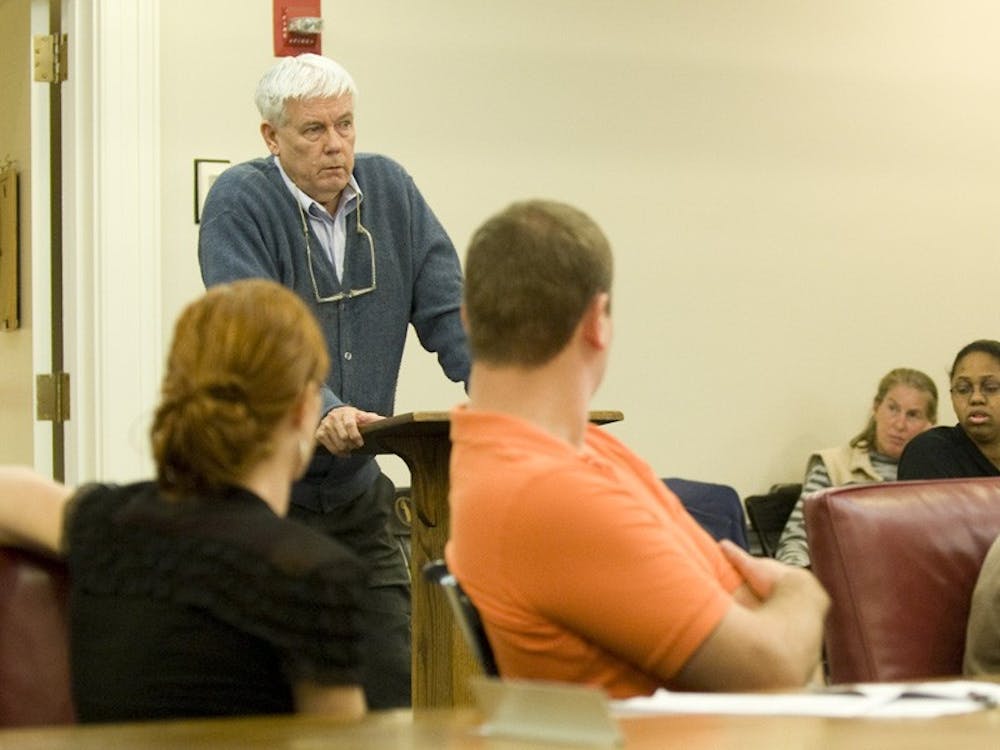The Honor Committee discussed the role of intent in a plagiarism case and changes to a proposed supplement that would educate students about plagiarism at last night's weekly meeting.
Emeritus History Prof. Alan Briceland of Virginia Commonwealth University first gave a presentation about the subject. Briceland, who has more than 40 years of experience dealing with the undergraduate and medical school honor systems at VCU, was asked to speak by parents of University students charged with plagiarism.
Briceland said the Committee should work to educate professors, specifically outlining the differences between grammatical plagiarism - which occurs when proper credit is not given to an original source because of accident or ignorance - and honor plagiarism, which occurs when a student deliberately uses another sources and cites it as his own.
Many professors cannot distinguish these types of plagiarism, he said, sometimes resulting in unfair charges.
"Too many professors are only attuned to honor plagiarism, their knee-jerk reaction is that 'plagiarism is plagiarism,'" Briceland said, adding that such professors often turn students in to an honor system before considering a student's intent.
Briceland also said the University needs to better educate its students, arguing that many students plagiarize as a result of ignorance.
"Avoiding plagiarism requires certain knowledge and skills," he said. "Some learn them quickly, and some don't."
He also cautioned the Committee about pursuing honor trial offenses dealing with plagiarism because a student's intent can be difficult to decipher. He added that evidence about intent may be difficult to gather.
"You probably think that plagiarism is an easy case to get, but it's the hardest because it involves getting into the mind of the perpetrator," he said.
After Briceland's presentation, Committee members were given a chance to respond to his arguments.
Darden Student Jen Guimond agreed that students at times plagiarize out of ignorance, adding that the Committee should take caution with plagiarism cases for this specific reason. Vice Chair for Education Rob Atkinson pointed out, though, that honor trials occur in these situations to figure out if a student plagiarized with intent to cheat.
"It seems to me that the point of a trial is to answer these questions," he said.
Committee members also reviewed a portion of the Honor Committee's guide to understanding plagiarism and paraphrasing. The Committee paid particular attention to a section of the guide that defined plagiarism.
The section under review read: "Plagiarism by paraphrasing occurs when you paraphrase a sources and ... cite it, but use words so similar to those of the source that they are almost a quotation: reasonably analyzing the passage would show that you had followed the source word-by-word for a significant portion as you paraphrased it."
Committee members feared the wording of this phrase would create complications for law and business school students, who often write in a technical style that does not differentiate much from their sources, Vice Chair for Community Relations JJ Litchford said.
The wording of the passage suggests students should consult professors' policies regarding plagiarism, Litchford said.
"We are going to make the language much less binding by linking [the part of the passage in question] to a professor's policy," he added.
Committee members will meet again next week to discuss the potential changes further.







